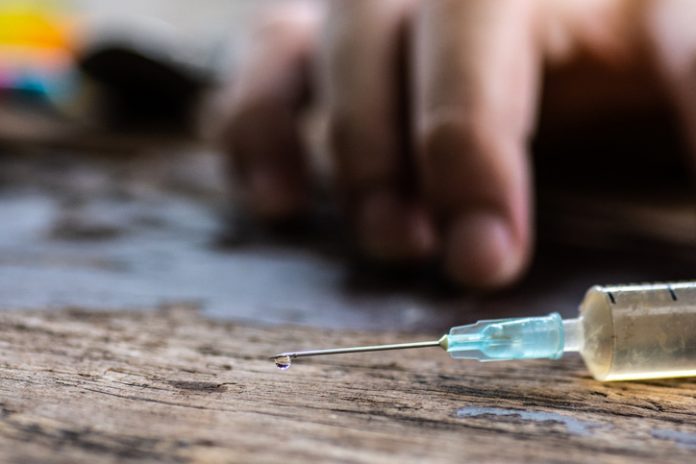The Centers for Disease Control and Prevention (CDC) reported 93,000 Americans died from a drug overdose in 2020 – a record. Under state lockdowns, deaths spiked 30 percent from the previous year. Health Care News asked David Allen, founder of Palmetto Addiction Recovery Center in Rayville, Louisiana, why the lockdowns have been so devastating to people struggling with addiction and what is on the horizon as drug trafficking has increased through the southern border. Rayville has close to 25,000 for substance abuse disorders.
Health Care News: Like many states, Louisiana ordered its citizens to stay home during the pandemic. Did that impede your ability to treat those struggling with addiction?
Allen: There is no question that the pandemic and the resulting lockdowns have had a huge impact on both the addicts suffering addiction and our ability to provide treatment to those that are impacted. We view addiction as a bio-psycho-social disease, and just as individuals get sick in all those ways, they must get well in all those ways, in order to have a successful, lasting recovery.
Addiction is shame-based. As the addict progresses through the stages of addiction, they view themselves as having less and less worth and value. As a result, they withdraw from relationships.
At the same time, relationships are being damaged by the pathological behaviors that result from the use of the substance, such as secretiveness, lying, emotional overreactions, neglecting family, friends, work, and other obligations, in order to use. Thus, the addict becomes more and more isolated. So, repairing relationships that were once functional is a critical step in recovery.
Unfortunately, for many, the task is even larger. They face building healthy, functional relationships from the ground up. This is obviously more challenging when face-to-face interactions are restricted. This has created less of a problem at our residential center as there is a closed community available consistently. The biggest impact has been the inability to provide face-to-face family treatment, another critical part of the social recovery component. As the addict progresses in their disease process, the family system develops its own pathology. Addressing this effectively is critical for the addicts continuing recovery. We had to suspend not only on-campus family treatment but also family visiting days. We have only recently opened that back up on a limited basis. We have compensated as best as possible using phone conferences and Zoom meetings.
Health Care News: How did the lockdowns impact those who recovered from addiction?
Allen: It’s been a bigger challenge providing ongoing support for graduates of our residential center and outpatient treatment at our six outpatient centers throughout the state. For many months we were limited to phone and Zoom meetings at all outpatient locations. Recently, we have been able to allow those who wish to attend onsite to do so at several locations.
I believe the ramifications of the lockdowns have been profound. Relapses happen even in stable times, but the increase of relapsed former patients has been noticeable, two to three times what we normally experienced before. The stress of being unable to attend 12-step support meetings, follow-up support groups, in some cases work, has been devastating to many.
Health Care News: There has been growing concern about increased drug trafficking along the southern border. Louisiana is next to Texas, a primary gateway. What have you noticed at your recovery centers?
Allen: Our patient population whose primary drug of choice is heroin has probably increased 70 percent. There is no question Fentanyl is a contributing factor. The detox process has become increasingly complex and difficult. This creates a very vicious cycle. On one hand, we now have a population whose detox process is longer and more grueling, so realistically they’re not ready to effectively participate in treatment the first two weeks. On the other hand, the insurance exchanges managing The Affordable Care Act only authorize 30 days of treatment. So, we’re left with individuals who need 90 days of treatment effectively receiving 14 to 16 days. They will reauthorize another 30 days following a relapse, so what we often end up with is 30 days, relapse; 30 days, relapse; and 30 days, in order to get the necessary time for the patient to cumulatively get what they need. Unfortunately, that detox process repeats each time, effectively negating the workable treatment days.
In our geographical area of Northeast Louisiana, in years past we might see a handful of overdose deaths resulting from heroin use in the course of a year. Now, we are seeing two to three a week. A local sheriff told us he was absolutely overwhelmed by the amount of heroin cut with Fentanyl, and pure Fentanyl alone on the streets of Northeast Louisiana, in large part, a rural area.
Health Care News: In 2018, deaths from drug overdose dropped for the first time since 1999. What happened that year that might be a lesson for us in the future?
Allen: The numbers for 2018 were mixed. They were down overall, but many areas of the country didn’t decrease, and overall the heroin/fentanyl deaths didn’t decrease, so it’s hard to draw lessons from 2018. On the policy front, we need to make sure the insurance exchanges that oversee the approval of benefits for the Affordable Care Act provide an adequate number of days for effective treatment to occur.
We need a policy that allows Naloxone to be easily available to anyone. This opiate agonist can reverse the deadly respiratory suppression from an opiate overdose within seconds to a minute. It is safe and easy to administer in the form of a nose spray, Narcan. Thousands of more lives can be saved.
Finally, we need to close the pipeline flowing across the southern border. Yes, fentanyl from China also comes across the border from Canada, and there are other entry points as well, but that does not relieve us as a society from more effectively dealing with the southern border.





















